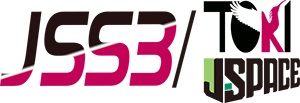Research on Structure and Composite Material Technologies for Digital Certification
JAXA Supercomputer System Annual Report February 2022-January 2023
Report Number: R22EA1601
Subject Category: Aeronautical Technology
- Responsible Representative: Yuichiro Aoki, Senior Researcher, Aviation Technology Directorate, Aircraft Lifecycle Innovation Hub
- Contact Information: Yuichiro Aoki, Digital Structures and Materials Technology Team, Aircraft Lifecycle Innovation Hub, Aviation Technology Directorate(aoki.yuichiro@jaxa.jp)
- Members: Yuichiro Aoki, Yoshiyasu Hirano, Kenichi Kubota, Shintaro Kamiyama, Toshiyuki Kasahara, Hiroki Kawabe, Kasumi Nagao, Keita Nakamoto, Yasutomo Tateishi, Tetsuo Yasuoka
Abstract
The objective of this research is to accurately model manufacturing defects in CFRP laminates and clarify their effects on strength.
Reference URL
N/A
Reasons and benefits of using JAXA Supercomputer System
High-performance parallel computing with large memory capacity is necessary for nonlinear finite element analysis with very fine 3D solid elements
Achievements of the Year
A FEM modeling which can predict the effect of defects in AFP laminates is proposed. Mechanical properties of CFRP laminates with gaps and overlaps are evaluated and stress concentration in the vicinity of gaps/overlaps are investigated. Additionally, influence of ply thickness is evaluated. The results obtained are as follows.
1) A modeling method was established that defines the physical properties of gaps/overlaps as a function of fiber volume fraction.
(2) It was found that stress concentration due to gaps/overlaps occurs around the edges of the gaps/overlaps, and the amount of stress concentration decreases as the width decreases. This is due to interference in stress concentrations at both ends when the width becomes below a specific value.
(3) It was found that using thin-ply prepregs reduces the amount of stress concentration and relaxation, and also narrows the stress affected area.
Publications
– Oral Presentations
Yasutomo Tateishi, Yoshiaki Yamaoka, Sho Miyashita, Yuichiro Aoki, Sunao Sugimoto, Toshiya Nakamura, A Study on Finite Element Modeling method for Thin-ply CFRP laminates with Gap/Overlap, The 60th The Aircraft Symposium, Niigata, October 2022.
Usage of JSS
Computational Information
- Process Parallelization Methods: MPI
- Thread Parallelization Methods: OpenMP
- Number of Processes: 2 – 256
- Elapsed Time per Case: 7200 Second(s)
JSS3 Resources Used
Fraction of Usage in Total Resources*1(%): 0.02
Details
Please refer to System Configuration of JSS3 for the system configuration and major specifications of JSS3.
| System Name | CPU Resources Used(Core x Hours) | Fraction of Usage*2(%) |
|---|---|---|
| TOKI-SORA | 0.00 | 0.00 |
| TOKI-ST | 16204.08 | 0.02 |
| TOKI-GP | 0.00 | 0.00 |
| TOKI-XM | 10208.91 | 6.39 |
| TOKI-LM | 223.75 | 0.01 |
| TOKI-TST | 0.00 | 0.00 |
| TOKI-TGP | 0.00 | 0.00 |
| TOKI-TLM | 0.00 | 0.00 |
| File System Name | Storage Assigned(GiB) | Fraction of Usage*2(%) |
|---|---|---|
| /home | 428.89 | 0.39 |
| /data and /data2 | 102927.56 | 0.79 |
| /ssd | 477.78 | 0.07 |
| Archiver Name | Storage Used(TiB) | Fraction of Usage*2(%) |
|---|---|---|
| J-SPACE | 0.00 | 0.00 |
*1: Fraction of Usage in Total Resources: Weighted average of three resource types (Computing, File System, and Archiver).
*2: Fraction of Usage:Percentage of usage relative to each resource used in one year.
ISV Software Licenses Used
| ISV Software Licenses Used(Hours) | Fraction of Usage*2(%) | |
|---|---|---|
| ISV Software Licenses(Total) | 0.00 | 0.00 |
*2: Fraction of Usage:Percentage of usage relative to each resource used in one year.
JAXA Supercomputer System Annual Report February 2022-January 2023





